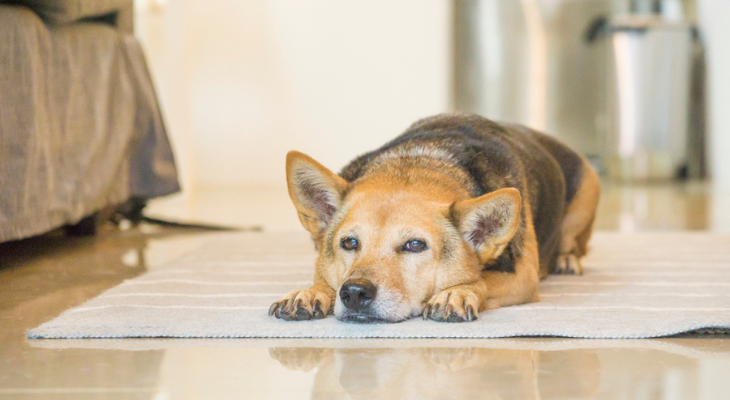
How Veterinarians Treat Arthritis in Dogs
Has your once-playful pet become a couch potato? Arthritis could be to blame. This painful joint disease affects almost 25% of all dogs, according to the American College of Veterinary Surgeons. Luckily, your pet's veterinarian offers several treatments designed to ease pain and stiffness.
Arthritis: It's a Cushioning Problem
Cartilage, a type of tough flexible tissue, covers and cushions the ends of bones. This tissue is essential for smooth, painless joint movements when your dog jumps on your bed or chases a squirrel in the backyard. Arthritis occurs when the cartilage wears away. Without enough cartilage to protect the joints, the bones rub together, causing pain and inflammation.
The American Kennel Club notes that arthritis is most likely to affect your dog's knees, elbows, hips, lower back, or wrists. The disease can occur in dogs of any breed, size, or age.
Although it's not always possible to determine the cause of arthritis, your pet may be more likely to develop arthritis due to:
- Hip or Elbow Dysplasia
- Joint Injuries and Infections
- Aging
- Obesity
- Dislocations
- Joint Surgery
- Diseases, Including Diabetes, and Addison's and Cushing's Disease
If your dog has arthritis, you may notice one or more of these signs:
- Limping
- Stiff Movements or Gait
- Avoidance of Stairs or Jumping
- Lack of Interest in Walks
- Licking the Sore Joint
- Weight Gain
- Irritability
- Increased Time Sleeping or Resting
These Treatments and Strategies Can Reduce Symptoms
Although it's impossible to restore worn cartilage, your veterinarian can recommend several strategies and treatments that may relieve pain and reduce stiffness, including:
- Pain Medication. Non-steroidal anti-inflammatory drugs (NSAIDs) can reduce pain, stiffness, and inflammation caused by arthritis. Although people also take NSAIDs for pain, it's not a good idea to offer your pet pain medication without checking with your veterinarian first. A safe dosage for you may be much too strong for your pet.
- Change in Diet and Weight Loss. Excess weight puts pressure on the joints, increasing pain. Your pet's veterinarian may recommend losing weight to ease arthritis symptoms. A 6 to 8.85% decrease in body weight could reduce arthritis symptoms significantly, according to a research study published in Veterinary Research Communications. Your pet's doctor may suggest decreasing the amount you feed your dog or recommend prescription pet food that contains anti-inflammatory ingredients.
- Exercise. If you have arthritis, you've probably noticed that your pain improves the more you move. The same is true for dogs with arthritis. A daily walk or a game of fetch can help reduce stiffness and improve mobility. Keep in mind that several shorter walks are better than one long walk.
- Glucosamine and Chondroitin. Glucosamine and chondroitin supplements could possibly slow joint degeneration. Again, it's best to check with your pet's veterinarian before giving your dog any kind of supplement.
- Physical Therapy. Some dogs may benefit from visiting a physical therapist who works with dogs. Physical therapy can reduce pain and stiffness and improve flexibility. If your dog enjoys swimming, spending more time in the water can also be helpful for arthritic joints.
- Other Therapies. Massage and acupuncture might also relieve stiffness and pain, while improving blood flow.
- Surgery. Although surgery isn't usually needed, it may be helpful if your dog has difficulty walking or is in severe pain. Surgery might involve removing cartilage and debris, fusing bones in a joint together, or rebuilding an arthritic joint.
Worried that your dog may have arthritis? Get in touch with our office to schedule an appointment with the veterinarian.
Sources:
American College of Veterinary Surgeons: Osteoarthritis in Dogs
https://www.acvs.org/small-animal/osteoarthritis-in-dogs/
American Kennel Club Canine Health Foundation: Managing Canine Arthritis
Veterinary Research Communications: The Effect of Weight Loss on Lameness in Obese Dogs with Osteoarthritis, 2/2010
https://www.ncbi.nlm.nih.gov/pmc/articles/PMC2855019/
JAVMA News: Getting Ahead of Osteoarthritis in Pets, 1/1/2021
https://www.avma.org/javma-news/2021-01-01/getting-ahead-osteoarthritis-pets
